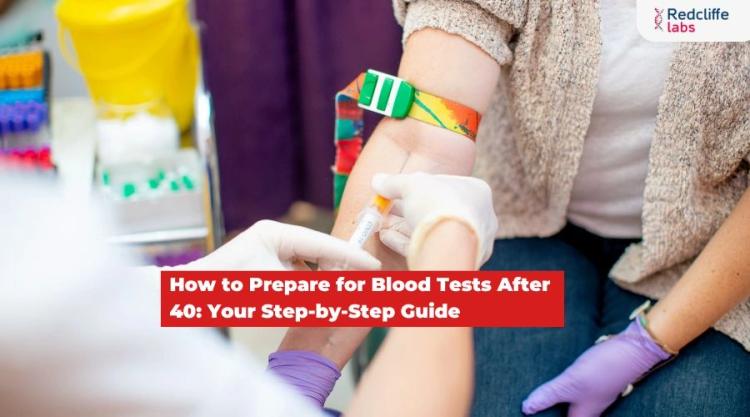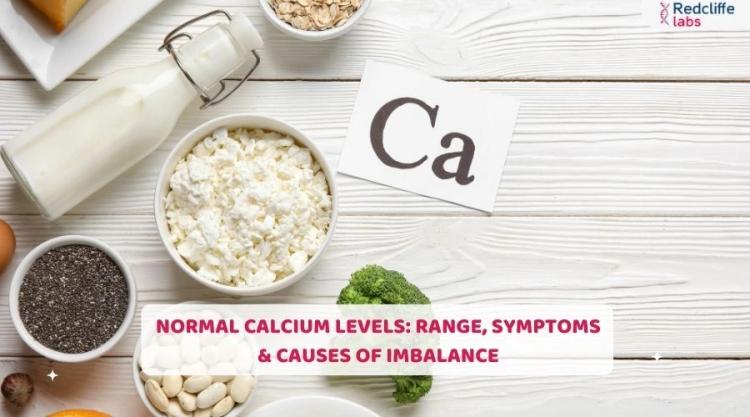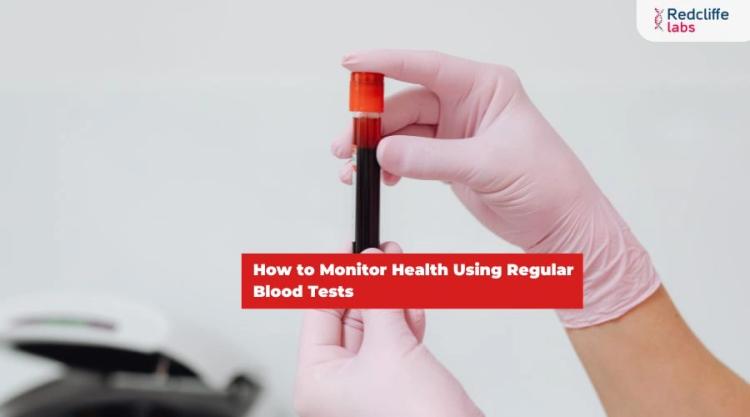Type of Blood tests for Cold and Cough - Complete Detail

Medically Reviewed By
Dr Divya Rohra
Written By Ritish Sharma
on May 18, 2023
Last Edit Made By Ritish Sharma
on Jun 25, 2025

With the seasons changing and temperature fluctuating, the common cold and cough become all too familiar. These ailments can make us miserable, affecting our daily lives and productivity.
While we often count on counter medications or home remedies to manage symptoms, there's a more accurate and scientific way to diagnose and understand the causes of these respiratory infections.
Blood tests for cold and cough are a promising diagnostic method to figure out the mysteries of our bodies. Healthcare professionals commonly use blood tests to diagnose various conditions and can also shed light on the underlying causes of cold and cough symptoms.
So, let's explore the type of blood tests that can help identify potential triggers for cold and cough, providing early diagnosis and targeted treatment approaches.
Who needs a blood test for a cold and cough?
Viral infections typically cause common colds and coughs and do not require specific blood tests for diagnosis or management. However, there are certain situations when a blood test may be recommended for common cold and cough, such as:
- Suspected bacterial infection (strep throat or pneumonia)
- Persistent or severe symptoms
- Suspected allergies
- Chronic health conditions (asthma, diabetes, or immune system disorders)
- Immunocompromised individuals
- Monitoring response to treatment
Type of Blood Tests for Cold & Cough
1. Complete Blood Count (CBC)
The Complete Blood Count (CBC) test is a comprehensive blood test that evaluates various components of our blood. These components include red blood cells, white blood cells, and platelets; each component plays a vital role in maintaining our overall health.
The CBC test proves to be a valuable tool when diagnosing infections such as cold and coughs. By examining the white blood cell count, the test provides essential insights into the body's immune response.
An increased white blood cell count, specifically elevated neutrophils, can indicate an ongoing infection.
Who needs a CBC test?
A CBC test may be recommended by a doctor for individuals experiencing cold and cough symptoms, particularly if:
- Suspicion of a bacterial infection
- Persistent cough
- Severe fever
- Allergies
- Immune system disorder
- Chronic health conditions (Asthma, diabetes, etc.)
What does the result indicate?
CBC results can provide valuable information about underlying conditions or complications regarding colds and coughs. For example, if the white blood cell count is significantly elevated, it may indicate a severe infection or a more systemic response.
Doctors can comprehensively understand the individual's health status by analyzing other CBC components, such as red blood cell count and platelet count.
2. Erythrocyte Sedimentation Rate (ESR)
The Erythrocyte Sedimentation Rate (ESR) test is a blood test that measures the rate at which red blood cells settle in a tube over a specific period of time. It is often used as an indicator of inflammation in the body.
In the context of cold and cough, the ESR test can provide valuable insights into the level of inflammation in the body, as respiratory infections often trigger an inflammatory response.
Who needs an ESR test?
The ESR test for cold and cough is generally recommended for individuals in the following cases:
- Persistent or severe symptoms of cold & cough
- Unresponsive to initial treatments
- Immune system disorder
- Prolonged cold and cough
- Underlying chronic health conditions
What does the test result indicate?
An elevated ESR can suggest a more severe or prolonged inflammatory response in the body, potentially indicating a more severe respiratory infection. However, it's essential to note that ESR results alone cannot pinpoint the exact cause of inflammation.
Other factors, like age, gender, and certain medical conditions, may also influence high ESR levels.
3. Respiratory Pathogen Panel
Respiratory pathogen panel tests are diagnostic tests that can detect the presence of various viral and bacterial pathogens responsible for respiratory infections.
These tests use advanced molecular techniques to identify specific pathogens, including common cold viruses, influenza viruses, respiratory syncytial virus (RSV), and bacteria. By detecting the specific pathogens causing cold and cough symptoms, respiratory pathogen panels provide valuable information for accurate diagnosis and appropriate treatment.
Who needs a respiratory pathogen panel?
A respiratory pathogen panel is generally recommended for individuals with
- Severe or atypical symptoms
- Immunocompromised
- Weaken immune system
- Prolonged respiratory infection
What does the test result indicate?
Positive results for specific viral or bacterial pathogens provide insights into the reasons behind the cold and cough symptoms, allowing for targeted treatment. Adverse effects, on the other hand, suggest non-infectious causes.
4. RT-PCR for COVID-19 (If Suspected)
RT-PCR (Reverse Transcription Polymerase Chain Reaction) is a susceptible and specific diagnostic test used to detect the presence of the SARS-CoV-2 virus responsible for COVID-19.
It involves collecting a nasal or throat swab from an individual with cold and cough symptoms and analyzing it in the laboratory. RT-PCR tests work by detecting the genetic material (RNA) of the virus, allowing for accurate identification and confirmation of COVID-19 infection.
Who needs an RT-PCR test?
RT-PCR tests for COVID-19 are recommended for individuals who exhibit symptoms of cold and cough, especially if they are experiencing additional symptoms such as -
- Fever
- Loss of taste & smell
- Fatigue
- Difficulty breathing
- Individuals with close contact with confirmed COVID-19 cases
- Individuals who recently traveled to areas with high transmission rates
What does the test result indicate?
A positive result indicates the presence of the SARS-CoV-2 virus, confirming a COVID-19 infection. Appropriate isolation, monitoring, and treatment measures can be implemented to prevent further transmission and manage the illness.
A negative result, however, only partially recognizes COVID-19. Therefore, if symptoms persist or there is a strong suspicion of COVID-19 despite a negative impact, doctors may recommend retesting or considering other diagnostic methods to ensure accurate diagnosis and appropriate management of cold and cough symptoms.
A Word from Redcliffe Labs
Early diagnosis is crucial in effectively managing and treating cold and cough symptoms. That's why Redcliffe Labs, India's digital-first diagnosis service provider, offers reliable blood tests for diagnosing colds and coughs.
With the convenience of free home sample collection services, Redcliffe Labs aims to make the diagnostic process seamless and accessible for individuals experiencing symptoms.
Advanced diagnostic methods allow these blood tests to identify the cause of cold and cough, allowing for timely and targeted treatment.
This comprehensive diagnostic approach helps individuals regain control over their health, enabling them to live their lives to the fullest.
Leave a comment
3 Comments
Purushottam
Dec 23, 2024 at 2:45 AM.
Given. valuable information
Myhealth Team
Dec 30, 2024 at 11:57 AM.
Thank you for your feedback! We are glad you found the information valuable. If you have any more questions or need further clarification, feel free to ask!
kaushal pratap
Dec 22, 2023 at 9:54 AM.
Hi sir mera name kaushal pratap hai meri grandmother ko pichle 4 to 5 month se lagatar dry cough ho rahi hai kya karna chahiye
Myhealth Team
Dec 22, 2023 at 12:04 PM.
Consult a Doctor: Seek professional advice for diagnosis. Hydration: Ensure she stays well-hydrated. Humidifier: Use for added moisture. Avoid Irritants: Reduce exposure to irritants. Saltwater Gargle: Try warm saltwater gargles. Consult a healthcare professional for personalized advice.
Vaniya vivek
Sep 21, 2023 at 10:56 AM.
Which reports should be done for cough?
Myhealth Team
Sep 22, 2023 at 10:38 AM.
For a persistent cough, common tests include chest X-ray, pulmonary function tests (PFTs), sputum culture, and blood tests. Additional tests may be needed depending on symptoms and suspected causes. Consult a healthcare provider for guidance on specific tests.



